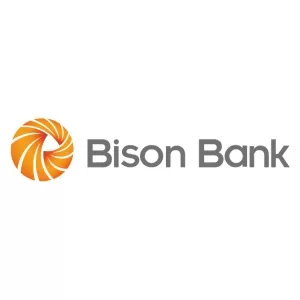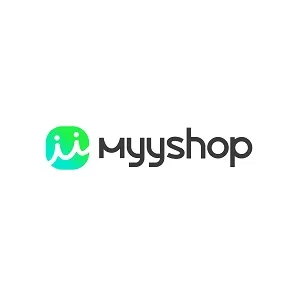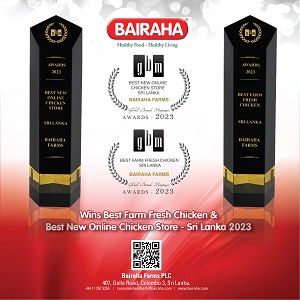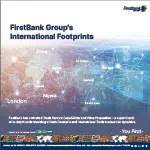Education
IBM Expands Data Science Education Around the World
IBM (NYSE: IBM) is expanding its academic initiative with a new program that infuses its natural-language-based Watson Analytics technology into the classroom to help professors teach students how to turn data into insights without needing in-depth knowledge of data science. IBM is also introducing a new student version of Watson Analytics that will put the power of cognitive computing into the hands of the next generation of business leaders as they prepare to enter the workforce.
The skills gap in analytics is well known – not just in IT, but also across a wide range of job roles and functions. Recent research cited in Datanami indicates that the current demand for data scientists exceed the current supply by factor of three1. To help meet the need, line of business managers are learning to launch complex analytics programs on their own; as Gartner predictsthat the number of citizen data scientists will grow five times faster than the number of highly skilled data scientists through 20172.
IBM is helping to prepare the citizen data scientist of tomorrow with a new Watson Analytics Academic Program that can be used to help educate more than 140,000 students in qualified leading universities globally including Northwestern University, the College of William and Mary, Deakin University in Australia and many more. The new program provides qualified universities with an enablement kit that includes sample data sets; an online course; student workbooks; video tutorials and pre-packaged syllabi to help professors update their lesson plans. The program also includes a one-year license of Watson Analytics Professional Edition for up to 100 users at no cost.
With these tools, nearly 400 universities are already using Watson Analytics to augment data analysis courses and, in some cases, create completely new analytics programs. For example:
- Northwestern University is building Watson Analytics into the curriculum of its Predictive Analytics, Marketing Mix Models and Entertainment Marketing classes to help its students build visualizations and learn about social media sentiment analysis. Students are analyzing data provided by an online retailer using manual analysis before moving the data sets into Watson Analytics. By comparing results, they are learning to remove personal bias from their analysis while learning to communicate their results with advanced visualizations.
- At Auburn University, Professor Dianne Hall is incorporating Watson Analytics into the university’s introductory statistics class –a required course for every business student – as well as several other predictive modeling and big data courses. Students are learning to analyze social media data from Twitter as well as real-life data sets from across the university using data visualizations to better interpret their results.
- Students at The College of William and Mary are using Watson Analytics in Professor Dorothea La Abraham’s Developing Business Intelligence course and a Health Analytics module in a health focused business course. Dr. Abraham is building lesson plans using sample data and workbooks available through Big Data University; allowing her students to explore the data through natural language processing.
- University of Connecticut is incorporating Watson Analytics into several MBA courses taught by Professor Girish Punj, including “Digital Marketing” and “Big Data and Strategy Marketing” classes, to teach future marketing professionals how to analyze data without the help of a data scientist. With Watson Analytics, students are learning how to build long-term marketing plans based on insights that they are extracting from sources including Facebook and Twitter.
- University of West Florida is using Watson Analytics in a Healthcare Informatics class to conduct data analysis on an asthma dataset and a dataset covering EPA reports across all 67 Florida counties. Through advanced data visualization and natural language processing, students are also learning how to uncover insights on correlations between behavior and obesity, which they could use to make more informed recommendations to physicians about how to treat patients in the real world.
- Iowa State University is incorporating Watson Analytics into a series of management information systems classes to teach students how to leverage social media sentiment to make more informed decisions about sales offerings and product lifecycle management. Using Twitter sentiment analysis available through Watson Analytics, students are uncovering relationships between Twitter discussions and sales data that they can use to adjust marketing campaigns in real-time.
- University of Memphis’ Fogelman College of Business and Economics has hundreds of undergraduate students using Watson Analytics as part of their initial introduction to business analytics as a component of the required “Critical Thinking and Project Management” course. With guided data discovery, Watson Analytics allows students with different analytical backgrounds – from advanced to novice – to quickly unveil insights and build advanced visualizations.
- Deakin University in Australia, through its IBM Centre of Excellence in Business Analytics, is opening Watson Analytics to more than 50,000 students via a university wide agreement. Students from undergraduate and postgraduate levels are given the opportunities to learn contemporary analytics applications in preparation for real-life scenarios when they enter the workforce in fields such as information systems, accounting, business analytics, finance, financial planning, human resource management, IT security, IT services and marketing specializations.
- Across nine campuses in Southeast Asia, Federation University in Australia is partnering with local businesses to help their Master of Technology Program students use Watson Analytics to learn how to analyze data around real–world problems as part of its capstone project.
“Data analysis will be a critical part of every job in the twenty-first century – so we see Watson Analytics, which turns everyone into a data scientist, as the future of analytics,” said Dr. Martin Block, Northwestern University. “Pulling from syllabus guides provided through the Watson Analytics Academic Program, we were able to integrate new lesson plans into our course work in less than a week; which has helped us prepare our students to tackle any analytical problem on their own once they enter the workforce.”
“With the shortage of data scientists, the rapid increase of citizen analysts and the growth in data, we need a paradigm shift away from Q&A-driven analysis and more towards unbiased inquiry to allow data scientists to spend less time searching and more time tuning; and citizen analysts to find patterns in data without deep statistical skills,” said Marc Altshuller, Vice President, Watson Analytics and Business Intelligence, IBM Analytics. “The new Watson Analytics Academic Program is enabling this by training the citizen analyst of tomorrow with skills to help them unlock the value of data for businesses around the globe.”
Furthering its mission to increase data science education, IBM is launching a new student edition of Watson Analytics that extends cognitive computing further into the classroom to help students learn how to prepare, refine and build predictions from data with smart data discovery. The new student version expands on capabilities available in the freemium version of Watson Analytics to offer students at qualified universities access to Twitter data as well data from external data sources including DashDB, IBM Netezza and more at no cost.
Universities can apply for the Watson Analytics Academic Program throughhttp://ibm.co/1emFp3G.
IBM has been a decades-long leader in open source innovation and data science education. In June, IBM committed to educating more than 1 million data scientists and data engineers on Spark through extensive partnerships with DataCamp, MetiStream, Galvanize and Big Data University MOOC.





















































